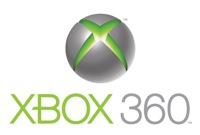Microsoft is clearly getting hipper with their offerings. The company that has been notoriously committed to offline products, like their Windows operating System and productivity suite, Microsoft Office, to the detriment of their online offerings seems to definitely be moving into the internet space more. They are, in fact, trying to own the online space now which is a significant internal company departure from the past.
As recently as yesterday, speculation was that the ill-branded Live! Search could be rebranded in a much more internet friendly way. Kumo.com anyone? Their IM client… well, no one uses it.
 Of course, they have jumped headfirst into the incubation industry by launching BizSpark, which seeks to provide promising young companies with technical resources, such as their server offerings, and human and business resources to help these investment companies, mostly web based startups, become viable.
Of course, they have jumped headfirst into the incubation industry by launching BizSpark, which seeks to provide promising young companies with technical resources, such as their server offerings, and human and business resources to help these investment companies, mostly web based startups, become viable.
Naturally, one of the odd players in the Microsoft ecosystem has been the Xbox 360 platform. It is a killer gaming platform (I am an avid Xbox Gamer) and their online gameplay over Xbox Live is second to none. It has always lacked any kind of cohesion for an online service though. Especially in 2008, where Facebook and Twitter rule the day and it is rare to find someone who is not on some kind of social networking platform.
So a few months ago, when word leaked out about a complete overhaul to the Xbox Live experience, there were many of us who were excited about a modernization with significant incorporation of social networking elements. With the launch the other day, some of that has been delivered.
The Xbox Experience, as it’s called, is a significantly streamlined dashboard making it extremely easy to access common items, such as the Xbox Marketplace. Incorporation of online video giant, also dabbling in the social networking space, Netflix makes the Experience worlds better. It is possible to watch Netflix “Instant Play” queue items directly via your Xbox Dashboard. Sweet, if the video quality was better. Putting this aside, the mashup is a great step in making the Xbox an entertainment hub.
However, significant issues remain. A “big bling” element to the new Xbox Experience, is the new avatars. Going through a wizard the first time I logged in, reminded me a bit of creating your Tiger Woods 2008 character. Though this is fine in creating a personalized environment, I find no purpose for an avatar except to snap a proverbial photo and making that photo your “avatar photo”. I would much rather designate an actual graphic or picture as my avatar, in much of the same way most social networks allow you to.
The storyline falls apart more when you login to manage your Xbox Live account from the web and discover they have not incorporated any further way of getting at your data. Microsoft would do well to develop robust APIs that would allow players to get an XML or JSON feed of achievements, gamerscores, last/currently played games as well as other social network elements.
Why not provide a much more efficient “friends” method that would allow players to have wish lists, friend challenges, friend groups, as well as a unique element I call “tip sharing”. Tip sharing would be a forum element where a friend could share intel about a game (say Fallout 3) and I could “download” that tip into my Xbox Live user account. When I reach the Farrugut West Metro station in Fallout 3 and my friend has discovered something, the game could feed me that intel from a friend.
Another social element would be the concept of a “lifeline” where, if I’m stuck during a game, I could get immediate assistance (in-game or otherwise) from my friends through screen sharing, instant message (kill Live! Messenger and use OpenAIM, please) or other “helper” element.
Let’s make it really social and make it possible for gamers to find other gamers in their area and schedule times together (if you have to, use a modified, online, lite version of Sharepoint or Exchange Server to make this happen).
Of course, a natural tie together, via OpenSocial, with other social networks, possible use of OAuth for data access and login, status messaging and comment, and other “social elements” would really flesh the Xbox Experience as useful in 2008.
What are your thoughts on the Xbox Experience?
